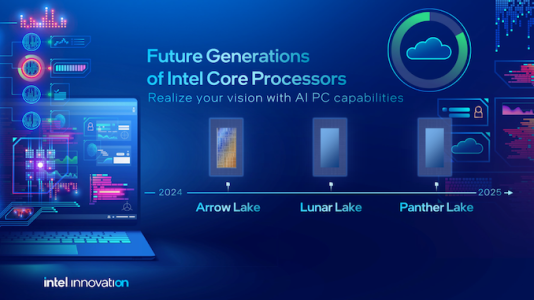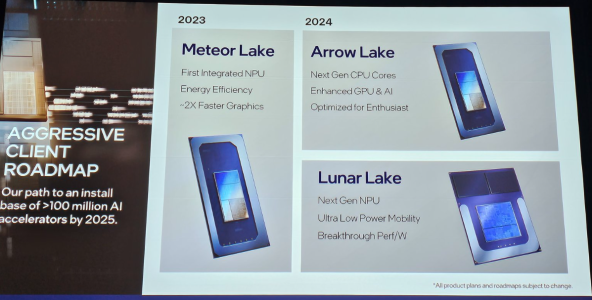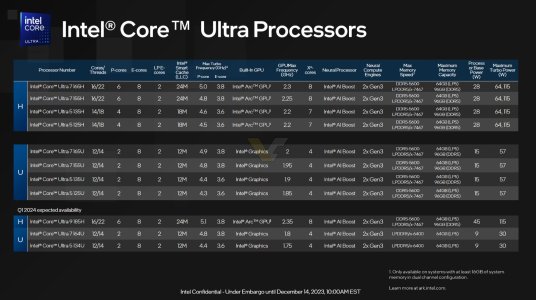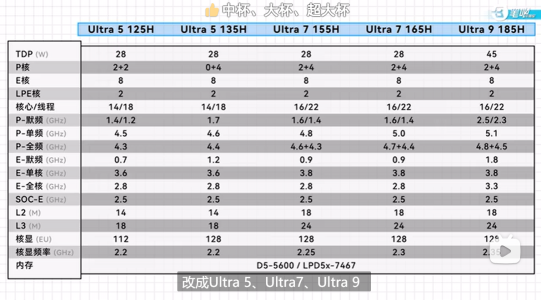Wildcat Lake (WCL) Preliminary Specs
Intel Wildcat Lake (WCL) is upcoming mobile SoC replacing ADL-N. WCL consists of 2 tiles: compute tile and PCD tile. It is true single die consists of CPU, GPU and NPU that is fabbed by 18-A process. Last time I checked, PCD tile is fabbed by TSMC N6 process. They are connected through UCIe, not D2D; a first from Intel. Expecting launching in Q2/Computex 2026. In case people don't remember AlderLake-N, I have created a table below to compare the detail specs of ADL-N and WCL. Just for fun, I am throwing LNL and upcoming Mediatek D9500 SoC.
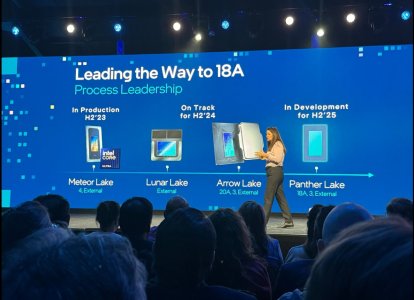
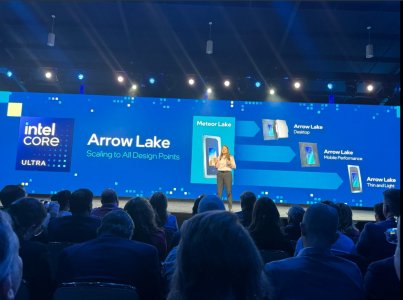
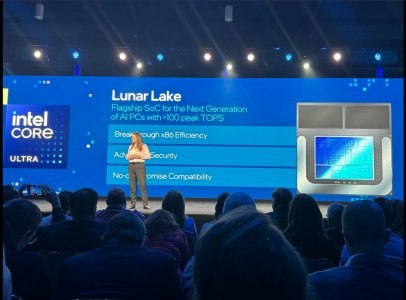
As Hot Chips 34 starting this week, Intel will unveil technical information of upcoming Meteor Lake (MTL) and Arrow Lake (ARL), new generation platform after Raptor Lake. Both MTL and ARL represent new direction which Intel will move to multiple chiplets and combine as one SoC platform.
MTL also represents new compute tile that based on Intel 4 process which is based on EUV lithography, a first from Intel. Intel expects to ship MTL mobile SoC in 2023.
ARL will come after MTL so Intel should be shipping it in 2024, that is what Intel roadmap is telling us. ARL compute tile will be manufactured by Intel 20A process, a first from Intel to use GAA transistors called RibbonFET.
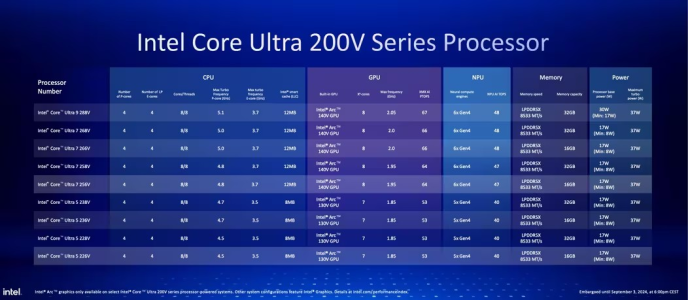
Intel Wildcat Lake (WCL) is upcoming mobile SoC replacing ADL-N. WCL consists of 2 tiles: compute tile and PCD tile. It is true single die consists of CPU, GPU and NPU that is fabbed by 18-A process. Last time I checked, PCD tile is fabbed by TSMC N6 process. They are connected through UCIe, not D2D; a first from Intel. Expecting launching in Q2/Computex 2026. In case people don't remember AlderLake-N, I have created a table below to compare the detail specs of ADL-N and WCL. Just for fun, I am throwing LNL and upcoming Mediatek D9500 SoC.
| Intel Alder Lake - N | Intel Wildcat Lake | Intel Lunar Lake | Mediatek D9500 | |||
|---|---|---|---|---|---|---|
| Launch Date | Q1-2023 | Q2-2026 ? | Q3-2024 | Q3-2025 | ||
| Model | Intel N300 | ? | Core Ultra 7 268V | Dimensity 9500 5G | ||
| Dies | 2 | 2 | 2 | 1 | ||
| Node | Intel 7 + ? | Intel 18-A + TSMC N6 | TSMC N3B + N6 | TSMC N3P | ||
| CPU | 8 E-cores | 2 P-core + 4 LP E-cores | 4 P-core + 4 LP E-cores | C1 1+3+4 | ||
| Threads | 8 | 6 | 8 | 8 | ||
| Max Clock | 3.8 GHz | ? | 5 GHz | |||
| L3 Cache | 6 MB | ? | 12 MB | |||
| TDP | 7 W | Fanless ? | 17 W | Fanless | ||
| Memory | 64-bit LPDDR5-4800 | 64-bit LPDDR5-6800 ? | 128-bit LPDDR5X-8533 | 64-bit LPDDR5X-10667 | ||
| Size | 16 GB | ? | 32 GB | 24 GB ? | ||
| Bandwidth | ~ 55 GB/s | 136 GB/s | 85.6 GB/s | |||
| GPU | UHD Graphics | Arc 140V | G1 Ultra | |||
| EU / Xe | 32 EU | 2 Xe | 8 Xe | 12 | ||
| Max Clock | 1.25 GHz | 2 GHz | ||||
| NPU | NA | 18 TOPS | 48 TOPS | 100 TOPS ? |



As Hot Chips 34 starting this week, Intel will unveil technical information of upcoming Meteor Lake (MTL) and Arrow Lake (ARL), new generation platform after Raptor Lake. Both MTL and ARL represent new direction which Intel will move to multiple chiplets and combine as one SoC platform.
MTL also represents new compute tile that based on Intel 4 process which is based on EUV lithography, a first from Intel. Intel expects to ship MTL mobile SoC in 2023.
ARL will come after MTL so Intel should be shipping it in 2024, that is what Intel roadmap is telling us. ARL compute tile will be manufactured by Intel 20A process, a first from Intel to use GAA transistors called RibbonFET.

Attachments
Last edited:


